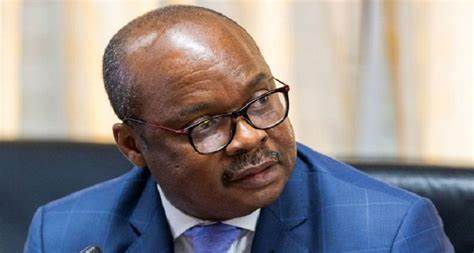
Audio By Carbonatix
As expected, the Monetary Policy Committee of the Bank of Ghana (BoG) has kept the policy rate at 14.5%.
This is the first time the rate has been kept same since it was adjusted upwards by 100 basis points in November 2021.
Consequently, cost of borrowing is expected to reman relatively same for the next two and half months.
“The latest forecast shows that inflation would likely remain above target in the near-term, driven by both external and domestic factors, and only return to target in about four-quarters ahead. The key risks to the inflation outlook include: rising crude oil prices and its transmission to ex-pump petroleum prices and transportation costs, rising global inflation, food price uncertainties, and the fiscal outlook”, the Central Bank said in its MPC report.
“The Monetary Policy Committee envisaged this scenario when it raised the policy rate in November 2021 to contain the inherent aggregate demand pressures likely to drive prices in the outlook. The Committee is of the view that the dynamics associated with the November 2021 policy rate hike are yet to be fully transmitted and expects the decisive implementation of the fiscal correction measures, especially the 20% cut in expenditure to help moderate the upside risks to the inflation outlook”, it explained.
The Committee chaired by the Governor of the Bank of Ghana said it will continue to monitor the impact of these policy measures and as needed call an extraordinary meeting to re-assess the inflation outlook over the forecast horizon and take the necessary policy decisions accordingly.
Interest rates record mixed trends
On the money market, interest rates reflected mixed trends across the yield curve. The 91-day and 182-day Treasury bill rates declined to 12.49% and 13.19% respectively in December 2021, from 14.08% and 14.13% respectively, in December 2020.
Similarly, the rate on the 364- day instrument decreased marginally to 16.46%, from 16.98% over the same comparative period.
Rates on the 2-year and 5-year bonds increased to 19.75% and 21.00% respectively, from 18.50% and 19.85% respectively, while rates on the 3-year, 6-year, 7-year and 10-year bonds broadly declined. The rates on the 15-year and 20-year bonds, however, remained unchanged at 19.75% and 20.20% respectively, over the same comparative period.
The weighted average interbank rate declined further to 12.68% from 13.56%, induced by persistent structural liquidity on the interbank market.
This transmitted to the retail end of the market, and average lending rates of banks declined marginally to 20.04% in December 2021, from 21.20% recorded in the corresponding period of 2020.
Latest Stories
-
Dad unlawfully killed daughter in Texas shooting, coroner rules
35 minutes -
Anas wins 7 – 0 as SC unanimously rejects attempts to reverse judgment in his favour
46 minutes -
The cocoa conundrum: Why Ghana’s farmers are poor despite making the world’s best chocolate
2 hours -
Powerful cyclone kills at least 31 as it tears through Madagascar port
2 hours -
GoldBod summons 6 gold service providers over compliance exercise
3 hours -
Power disruption expected in parts of Accra West as ECG conducts maintenance
3 hours -
Police investigate alleged arson attack at Alpha Hour Church
3 hours -
Heavy Sunday downpour wrecks Denyaseman SHS, schools, communities in Bekwai Municipality
3 hours -
Ridge Hospital is in critical condition – GMTF Boss appeals to corporate Ghana
4 hours -
Introduce long term measures to tackle challenges in cocoa sector – IERPP to government
4 hours -
Agricultural Economist proposes blended financing model to support cocoa sector
4 hours -
NPP MP warns against reducing producer price as government rolls out cocoa reforms
5 hours -
Tano North MP urges halt to grain exports over food glut
5 hours -
Farmers hopeful as government moves to expedite cocoa payments
5 hours -
Tensions at Agbogbloshie market women oppose AMA drain cleaning exercise, items confiscated
5 hours

